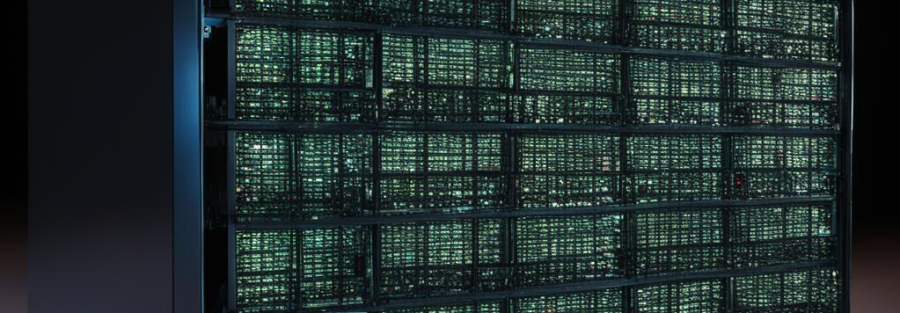Welcome to the exciting world of PHP and client-side storage! As a web developer, you know how crucial it is to store data efficiently while ensuring a seamless user experience. In this blog post, we will delve into the realm of cookies, localStorage, and sessionStorage in PHP – exploring their functionalities, benefits, and how you can leverage them to enhance your projects. So buckle up as we embark on an insightful journey into the dynamic landscape of client-side storage options for PHP development!
Understanding Cookies and How They Work
Cookies play a crucial role in web development, acting as small pieces of data stored on the user’s device by the web browser. They enable websites to remember user information and preferences, enhancing the browsing experience. Think of them as virtual breadcrumbs left behind during your online journey.
When a user visits a website, the server sends back a cookie containing specific information that gets stored locally on the user’s device. These cookies can be accessed and modified by both the server and client-side scripts like PHP. This allows for personalized content delivery based on past interactions with the site.
Cookies have their limitations too – they are limited in size (usually 4KB) and have expiry dates set by developers. Additionally, some users may disable cookies due to privacy concerns or security reasons.
Understanding how cookies work is essential for web developers looking to create dynamic and interactive websites that cater to individual user preferences effectively.
Benefits and Limitations of Using Cookies in PHP
Cookies in PHP offer a convenient way to store small pieces of data on the client’s browser. This can be useful for maintaining user sessions, tracking preferences, and personalizing experiences. By storing information locally, cookies allow websites to remember users even after they leave the site.
There are limitations to using cookies in PHP. One major drawback is that they have size restrictions which limit the amount of data that can be stored. Additionally, cookies are vulnerable to security risks such as cross-site scripting and interception by malicious actors.
Despite these limitations, cookies remain a popular choice for storing temporary data due to their simplicity and wide support across browsers. When used judiciously, cookies can enhance user experience without compromising privacy or security.
LocalStorage vs SessionStorage: What’s the Difference?
When it comes to client-side storage in web development, understanding the differences between LocalStorage and SessionStorage is crucial.
LocalStorage stores data with no expiration date, meaning the data will persist even after the browser is closed and reopened. On the other hand, SessionStorage only retains data for a single session, clearing it once the tab or window is closed.
Local Storage can hold larger amounts of data compared to Session Storage since it has no size limit restrictions. However, SessionStorage is limited to storing data for a specific browsing session only.
Developers often choose LocalStorage for saving user preferences or caching application state that needs to be persistent across sessions. In contrast, SessionStorage is more suitable for storing temporary information like form input values during a specific browsing session.
Understanding when and how to utilize LocalStorage versus SessionStorage can significantly impact your PHP project’s performance and user experience. Experimenting with both options based on your project requirements can help you make an informed decision on which storage method best suits your needs.
Implementing LocalStorage and SessionStorage in PHP
When it comes to implementing LocalStorage and SessionStorage in PHP, you have the power to enhance user experience on your website. These client-side storage options allow you to store data locally on the user’s browser, reducing server load and improving performance.
LocalStorage provides a way to store data with no expiration date, making it ideal for saving settings or preferences that should persist across sessions. On the other hand, SessionStorage stores data for a single session only, clearing out once the browser is closed.
By utilizing these storage options effectively in your PHP project, you can create seamless interactions and personalized experiences for your users. Whether you need to save temporary data during a session or retain information long-term, LocalStorage and SessionStorage offer flexible solutions to meet your needs.
Choosing the Right Storage Option for Your PHP Project
When it comes to choosing the right storage option for your PHP project, it’s essential to consider the specific requirements and needs of your application.
Cookies are a reliable way to store small pieces of data on the client-side, but they have limitations in terms of size and security. LocalStorage is great for persistent storage of larger amounts of data, ideal for storing user preferences or settings. On the other hand, SessionStorage is perfect for temporary data that should be cleared once the session ends.
By understanding the differences between Cookies, LocalStorage, and SessionStorage in PHP, you can make an informed decision based on what best fits your project’s objectives. Remember to prioritize security, performance, and scalability when determining which storage option aligns with your development goals.
Selecting the appropriate storage mechanism will contribute significantly to enhancing user experience and optimizing functionality within your PHP applications. Choose wisely and leverage these client-side storage options effectively to create seamless web experiences for your users!

